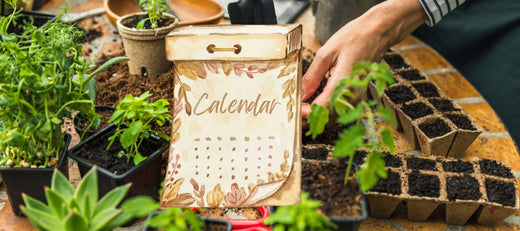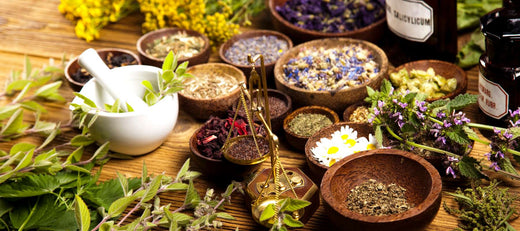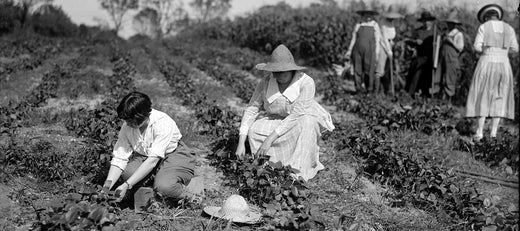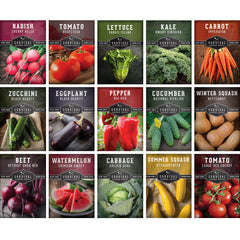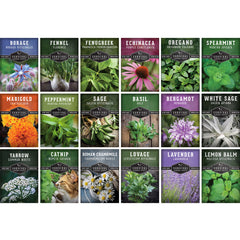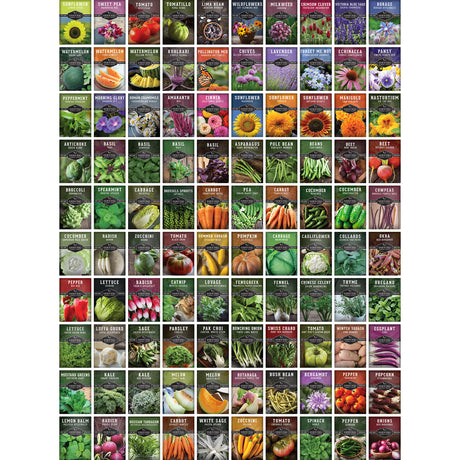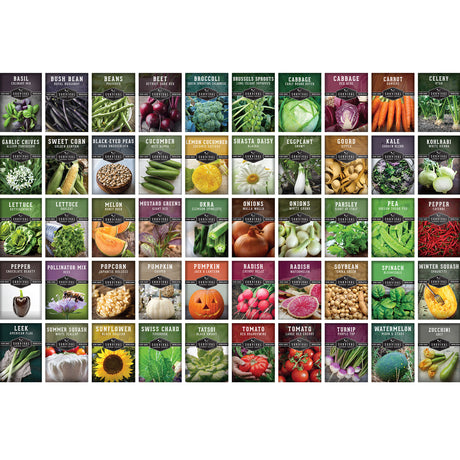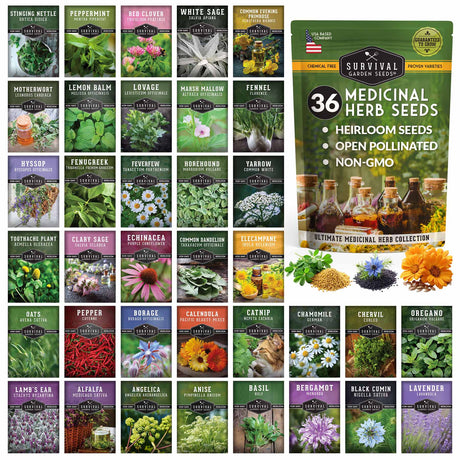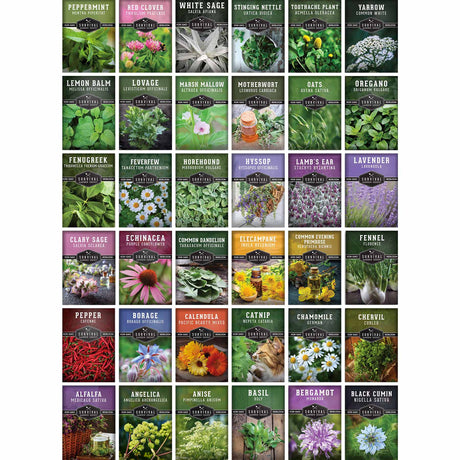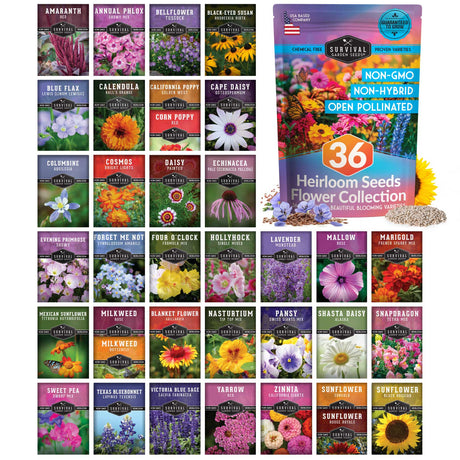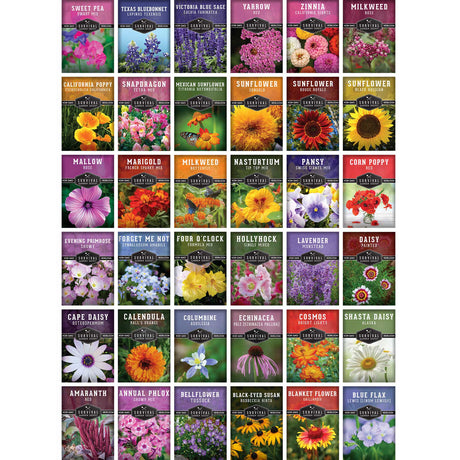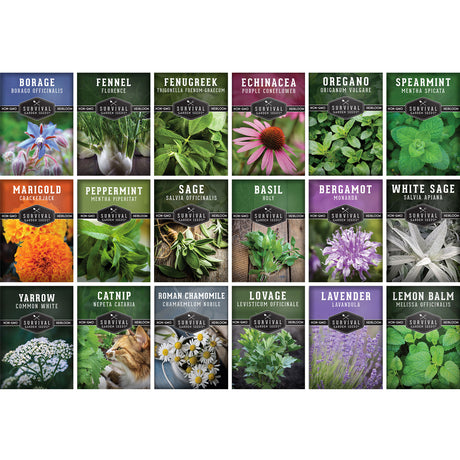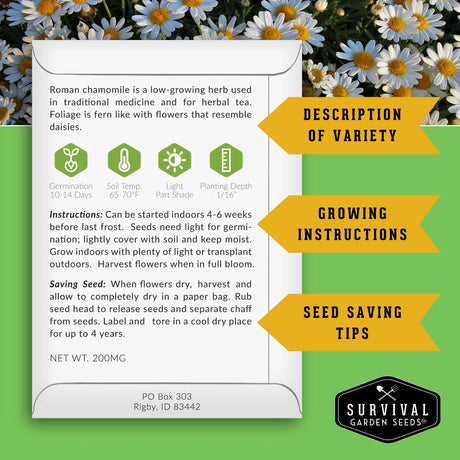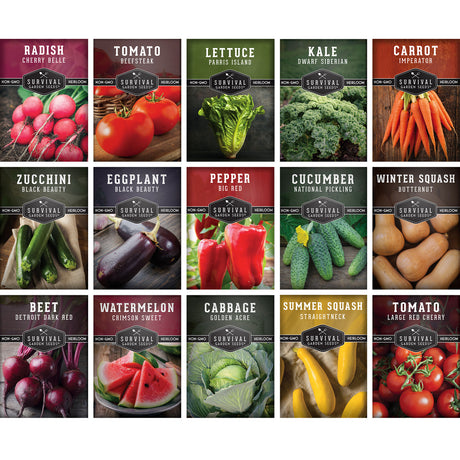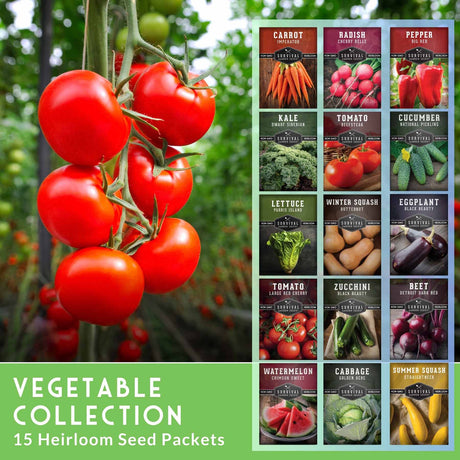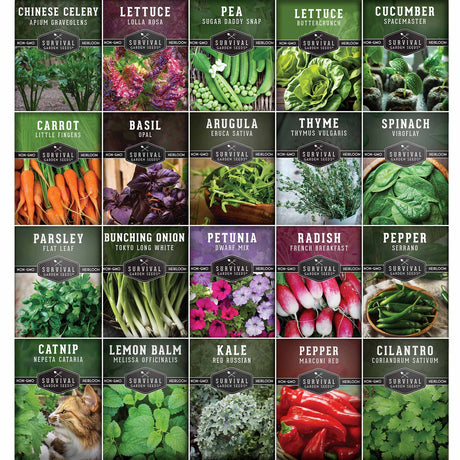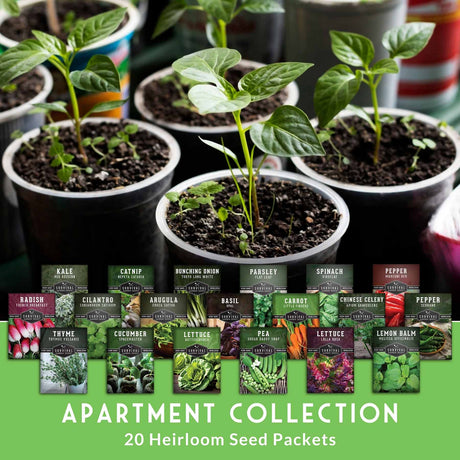Today, there are two main types of seeds grown in home gardens; hybrid seeds and heirloom seeds. Hybrid seeds are created by crossing two different varieties of plants to create a new one that has desired traits like disease resistance or higher yields. While hybrid seeds can be beneficial for commercial agriculture, the seeds from the hybrid plants will not retain their unique traits and cannot be saved for future use.
Heirloom seeds are open-pollinated seeds that have been handed down from generation to generation. These are the varieties your grandparents may have planted in their garden, and they've got a great track record. These garden seeds were developed over decades or more, and hand-selected to bring out specific traits like flavor, resistance to disease or pests, and tolerance to certain weather conditions.
Today's gardens can gain a lot from the wisdom of gardeners of days long gone and the genetic diversity of heirloom seeds. Here are a few of the benefits of planting heirloom seeds in your survival garden:
Flavor

Delicious flavor and better quality produce are the reason most people opt for heirloom vegetable garden seeds. Anyone who has tasted an heirloom tomato plant like Black Krim or Cherokee Purple knows that heirloom seeds often produce fruits and vegetables that are bursting with flavor. Their counterparts in the grocery store are often bred for high yields, shelf stability, resistance to herbicides, or uniform appearance instead of flavor.
This factor becomes even more important when you're choosing seeds for survival. In emergencies or long-term situations where morale is low, it can make a huge difference if your food nourishes both the body and the soul! So grow the best survival food you can with tasty heirloom varieties.
Nutrition
Great-tasting flavor goes hand in hand with more potent nutrition. Our tastebuds delight in the complexity of freshly picked, homegrown heirloom vegetables because we're naturally programmed to enjoy food that's packed with antioxidants and nutrients. When you are growing to feed your family, you want every bite to help keep them healthy and strong.
Industrially farmed foods of today have significantly lower nutritional content than they did 100 years ago, with lower concentrations of protein, minerals, and vitamins. These changes are partially a result of breeders focusing on yield over nutrition. The way these plants are farmed is also usually a monoculture that relies on heavy use of fertilizer and other techniques that dilute the nutrition of these plants. That's not usually a problem for a home gardener who is growing food to feed their family.
History

A garden filled with heirloom fruits, grains, and vegetables is a step back in time, but in a very good way. It's a wonderful experience to eat the foods from heirloom plants that your grandparents ate - and maybe even their grandparents, too! That connection to the past is especially important when you're considering growing in a survival situation. Heirloom plants have a rich history. Some heirloom plant varieties are thousands of years old, and that's a humbling and hopeful connection to the past that can help ground you. It is important to remember other people have found ways to thrive in hard times, and that's why you're here today! Drawing from the wisdom of the past can start with growing the same seeds they grew, using a lot of the same gardening techniques.
Better Crop Survival
Speaking of gardening techniques, heirloom plants were often developed to survive emergencies that can cause crop failure. Over the ages, gardeners who developed heirloom varieties of seeds would use the natural properties of the plant to work for them. They would save the seeds from their best plants that were disease-resistant and survived drought, pests, and competition from weeds.
Less Expensive
Growing your food supply, especially from seed, is almost always less expensive than buying it at the grocery store. But did you know that heirloom seeds are usually the least expensive garden seeds for sale? The shortcut of hybrid varieties comes at a premium price, in part because of the difficulty in breeding them from different parent varieties.
Seed Saving

If you save your seeds, the price savings for the next year is 100%. Since heirlooms are open-pollinated plants, the seeds you save will “breed true” - meaning that the seeds your plants produce will grow the same type of plant, generation after generation. That's why we've included seed-saving information on the back of each of our seed packets. Learning to save seeds is an important survival skill!
A Longer Harvest
Heirlooms were bred to create a more gradual supply of tasty delicious vegetables and fruits for your garden. Contrast that to commercial varieties that often ripen at the same time so that machines can harvest once and clear the land for new crops. Yet again, home gardening beats out industrial agriculture which values cheap and convenience over healthy and natural.
Guaranteed Non-GMO
If the seeds in your survival seed kit are heirlooms, you also know without a doubt that they are non-GMO. Genetically modified organisms are a new development. Tried and true heirloom varieties are what you want to keep in your survival seed bank.
Preserve Genetic Diversity
There's a reason that seed exchanges and seed-saving organizations all over the world are working hard to save as many heirloom seeds as possible. The genetic diversity of these seeds is crucial to the survival of future generations, especially in times of emergency. We've seen lately how easy it is for disease to travel across the globe, and this holds for plant disease as well. When more people grow a wider variety of heirloom seeds, it's easier to find plants that can withstand whatever current hardship is facing the food supply.
Monocultures currently dominate agriculture, but heirloom varieties can hold the answer to genetic resilience. Many historical tragedies happened when farmers relied too heavily on one crop that was destroyed by disease, drought, or pests. Perhaps the most famous example is the Irish potato famine, caused by a fungus that swept through the island of Ireland. Let's learn the lessons from history!
Tried & True Flower Varieties

We can't forget the importance of flowers in your survival garden! Heirloom flower seeds (and herb seeds) have the same kinds of benefits as heirloom vegetable seeds. The old-fashioned beauty of these flowers is enhanced by their fragrance. In addition to adding more diversity to your garden, these flowers can be very attractive to pollinators like butterflies, bees, and hummingbirds. They also often have medicinal qualities or make excellent companion plants, improving the overall yield of your garden.
As you can see, your best survival seed vault will be stocked with an assortment of different heirloom vegetables, herbs, and flowers. By choosing heirlooms, your family will enjoy a tastier, more nutritious food supply. They'll also have much more resilience to unpredictable and changing situations in your neighborhood. In times when the supply chain is limited, you won't have to depend on what farmer seeds are available on the market if you've got your stockpile of heirlooms in your seed bank. It helps to have a lot of different types of seeds planted during every growing season. If you have a bad year, growing a healthy and diverse garden filled with heirloom crops can make all the difference for survival.
Image Credits: Cover image NATIONAL EMERGENCY WAR GARDENS COM. GIRL SCOUTS AND OTHERS date: 1919 - Harris & Ewing, photographer

